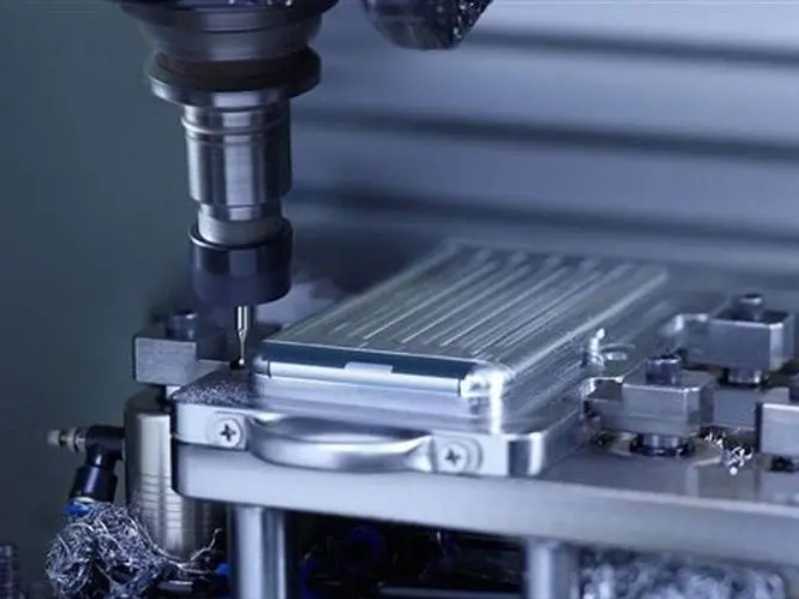Towards Intelligence: Trends in Digital Transformation in Sheet Metal Processing and CNC+ View more
Towards Intelligence: Trends in Digital Transformation in Sheet Metal Processing and CNC
+ View more
Date:2023-11-13 20:00
Introduction
In the rapidly evolving landscape of manufacturing, digital transformation has become a key driver of innovation. This article explores the trends and advancements in digital transformation specifically in sheet metal processing and Computer Numerical Control (CNC) technology. By leveraging intelligent systems and data-driven approaches, manufacturers are revolutionizing their operations and paving the way towards a more intelligent future.

The Rise of Intelligent Systems
Digital transformation in sheet metal processing and CNC is driven by the integration of intelligent systems. Artificial Intelligence (AI), Machine Learning (ML), and Internet of Things (IoT) technologies are being utilized to enhance productivity, optimize processes, and enable real-time monitoring and analysis.
Smart Manufacturing with AI and ML
AI and ML algorithms are transforming sheet metal processing and CNC by enabling predictive maintenance, quality control, and process optimization. With the ability to analyze vast amounts of data, these technologies can detect anomalies, predict potential failures, and optimize production parameters to achieve higher efficiency and superior product quality.
IoT Enabled Connectivity and Monitoring
The adoption of IoT devices in sheet metal processing and CNC has revolutionized connectivity and monitoring capabilities. Sensors embedded in machines and equipment provide real-time data on performance, energy consumption, and material usage. This data can be analyzed to identify bottlenecks, optimize workflow, and make informed decisions for improved resource allocation.
Cloud Computing for Enhanced Collaboration and Data Management
Cloud computing has emerged as an invaluable tool in the digital transformation of sheet metal processing and CNC. It allows for seamless collaboration between designers, engineers, and manufacturers, enabling real-time communication and concurrent engineering. Additionally, cloud-based platforms facilitate secure storage, easy access to data, and advanced analytics for informed decision-making.
Additive Manufacturing and 3D Printing
Digital transformation has also extended to the realm of additive manufacturing and 3D printing in sheet metal processing and CNC. These technologies enable the production of complex geometries, rapid prototyping, and customization. By leveraging digital design files and CNC-controlled additive manufacturing processes, manufacturers can achieve faster production cycles and reduced material waste.

Enhanced Human-Machine Interaction
Digital transformation in sheet metal processing and CNC emphasizes the importance of human-machine interaction. Collaborative robots, known as cobots, are being integrated into manufacturing processes to enhance productivity and safety. These systems work alongside human operators, taking over repetitive or physically demanding tasks, while humans focus on more complex decision-making and problem-solving.
Data Security and Cybersecurity Considerations
As digital transformation progresses, ensuring data security and cybersecurity becomes paramount. Manufacturers must implement robust measures to protect sensitive information, secure communication networks, and prevent unauthorized access to machines and systems. Regular audits, compliance with industry standards, and employee training play crucial roles in maintaining a secure digital environment.
Conclusion
The ongoing digital transformation in sheet metal processing and CNC is reshaping the industry towards intelligence-driven operations. The integration of intelligent systems, AI, ML, IoT, cloud computing, additive manufacturing, and enhanced human-machine interaction are just a few examples of how manufacturers are embracing digital technologies. As this transformation progresses, it is essential for manufacturers to prioritize data security and cybersecurity to safeguard their intellectual property and maintain trust in an increasingly interconnected world. By staying at the forefront of digital innovation, the sheet metal processing and CNC industry will continue to drive efficiency, flexibility, and sustainable growth in the future.
Share to:
Recommend wonderful blog posts

